

Sustainability-focused events are a powerful way to engage students and bring learning to life. This START metric encourages schools to organize activities such as assemblies, guest speaker sessions, fairs, symposiums, workshops, webinars, or film screenings that are tailored to their student community. These events create opportunities for students to explore real-world environmental challenges and discover how their everyday actions can contribute to positive change.
By including these events in the school calendar, schools can spark meaningful conversations, showcase practical solutions, and introduce students to the idea of regeneration—the process of restoring and renewing the natural systems that support all life on Earth. These experiences help foster a deeper connection to nature, a sense of responsibility, and a belief in the possibility of healing and renewal—making sustainability a visible and valued part of school culture.

Ideas for Organizing Sustainability-Related Events
NOTE: This is not a prescriptive list; it just offers ideas to inspire action and can be tailored to fit the unique needs of each school.
Create a Sustainability Events Calendar
Develop an annual calendar of sustainability events to ensure consistent engagement.
Align events with global observances, such as Earth Day, World Environment Day, or Climate Week.
Host Guest Speaker Sessions
Invite environmentalists, scientists, experts, or local leaders to speak about sustainability topics.
Include Q&A sessions to allow students to interact with speakers and deepen their understanding.
Organize Sustainability Fairs
Set up booths or stations showcasing sustainability initiatives, projects, or solutions.
Include interactive activities, such as DIY composting workshops or recycling challenges, to engage students.
Plan Movie Screenings
Show documentaries or films that explore environmental themes, such as 2040, The Story of Stuff, The True Cost or The Biggest Little Farm.
Follow up with discussions or panels to explore the themes presented in the film.
Hold School Assemblies on Sustainability
Use assemblies to introduce major sustainability themes, showcase student-led projects, or highlight achievements.
Incorporate multimedia presentations or performances to make assemblies engaging and memorable.
Host Sustainability Summits or Symposiums
Organize multi-session events where students can attend workshops, listen to speakers, and collaborate on solutions to sustainability challenges.
Include breakout sessions focused on specific topics, such as energy efficiency, waste reduction, and regeneration.
Leverage Webinars for Remote Learning
Organize virtual events featuring experts from around the world to discuss widely experienced sustainability challenges and solutions.
Use interactive tools like polls or chat features to engage online participants.
Incorporate Hands-On Workshops
Offer workshops where students can build or create something sustainable, such as planting a garden, building solar ovens, or crafting from recycled materials.
Use these workshops to teach practical skills that students can apply in their daily lives.
Promote Peer-Led Sessions
Encourage students to lead workshops, presentations, or panels based on their sustainability interests or projects.
Use peer-led sessions to empower students and inspire others to get involved.
Partner with Local Organizations
Collaborate with trusted local partners, such as businesses, community groups, or service providers to co-host events or provide resources.
Use partnerships to enrich events and connect learning to the real world.
Organize Action-Oriented Events
Plan events where students actively contribute to sustainability goals, such as community cleanups, tree-planting days, or donation drives.
Use these activities to show students the tangible impact of their efforts.
Incorporate Interactive Displays
Set up interactive exhibits, such as energy-saving demonstrations or waste-sorting games, at events.
Use these displays to make learning engaging and hands-on.
Celebrate Achievements Through Events
Host ceremonies or showcases to celebrate milestones, such as achieving waste reduction goals or completing student-led projects.
Use these events to recognize contributions and build enthusiasm for future initiatives.
Use Technology to Enhance Events
Incorporate virtual reality experiences, digital simulations, or augmented reality tools to engage tech-savvy students.
Use apps or online platforms for event sign-ups, feedback, or participation tracking.
Align Events With Local Contexts
Focus on sustainability issues relevant to the local community, such as urban greening, water conservation, or food security.
Use events to teach students how local actions contribute to global sustainability goals.
Offer Incentives for Participation
Provide rewards, such as eco-friendly merchandise, certificates, or recognition in newsletters, for attending or contributing to events.
Use incentives to motivate students to actively engage.
Involve Families and the Community
Invite parents and community members to attend or participate in sustainability events.
Use these opportunities to strengthen ties between the school and its broader community.
Resources
-

Educated Choices Program Presentations
The Educated Choices Program offers on-demand access to free educational videos, lesson plans, and more resources to educate and empower students and community members to make more sustainable food choices for human and planetary health
-

2040 Documentary: How to Inspire Hope and Action
2040: Regeneration is a documentary to inspire hope and action in tackling the climate crisis, and includes accompanying curriculum resources.
-

Green Fair Guide
A Sustainability Fair Guide that includes tips and tools for creating an engaging school event that promotes sustainability through hands-on educational activities.
Dates for Awareness and Action
-

Earth Day (22 April Annually)
EarthDay.org provides resources like lesson plans, activity ideas and planning tools, as well as student competitions.
-

January 20th: Take a Walk Outdoors Day
Take a Walk Outdoors Day, celebrated annually on January 20, encourages people to reconnect with nature by simply stepping outside for a walk.
-
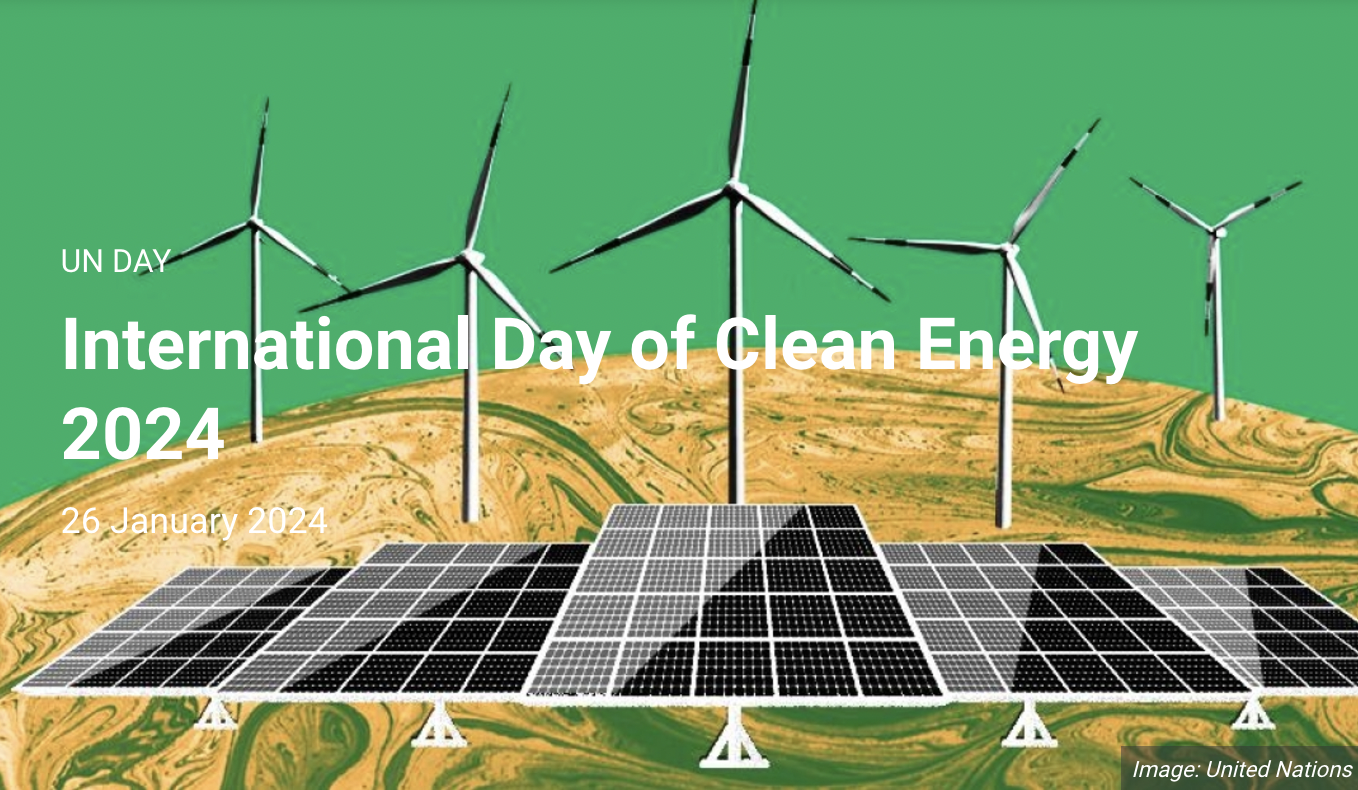
January 26th: International Day of Clean Energy
A global event focused on promoting the transition to sustainable and renewable energy sources.
-

January 28th: International Reducing CO2 Emissions Day
An event that highlights the urgent need to tackle climate change by cutting carbon dioxide emissions.
-

February 15th: International Day of Green Walls
This event showcases the environmental and aesthetic benefits of living walls.
-

March 3rd: Digital Cleanup Day
Digital Cleanup Day is an annual global event dedicated to reducing digital waste and its impact on the environment.
-

March 18th: World Recycling Day
An important global event designed to raise awareness about the benefits of recycling and its critical role in protecting the environment.
-
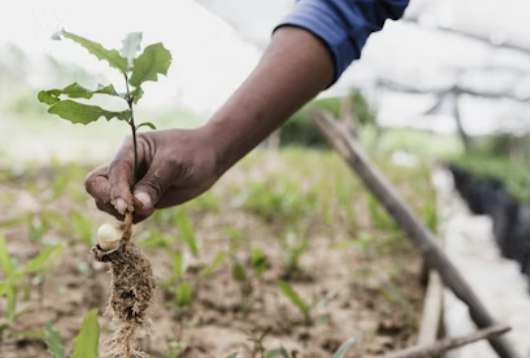
March 21st: World Planting Day
A global event aimed at raising awareness about the importance of planting trees and plants to support environmental sustainability and combat climate change.
-
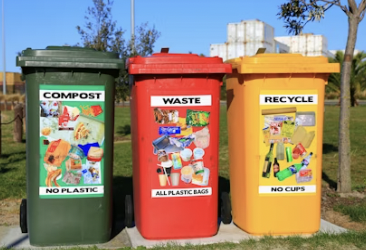
March 30th: International Day of Zero Waste
A global initiative to raise awareness about sustainable consumption, production, and reducing waste.
-
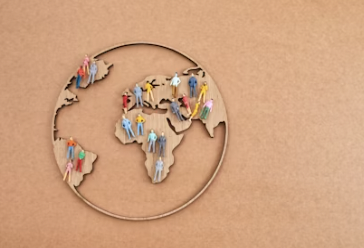
April 7th: World Health Day
A day to raise awareness of global health issues.
-

First Full Week of May: International Composting Awareness Week
An annual global event that highlights the critical role composting plays in creating healthier soil and more sustainable communities.
-

May 22nd: International Day for Biodiversity
A global observance to raise awareness about the importance of biodiversity and the need to protect it.
-

June 3rd: World Bicycle Day
An event that honors the bicycle's enduring impact on health, sustainability, and global accessibility.
-

June 5th: World Environment Day
The United Nations' most prominent environmental outreach platform.
-

June 6th: World Green Roof Day
An event that highlights the benefits of green roofs, also known as living roofs, for sustainable urban design and climate action.
-

June 15th: Global Wind Day
Global Wind Day is celebrated annually on June 15, bringing attention to the significance of wind energy in our quest for a sustainable future.
-

June 24th: Upcycling Day
Upcycling Day is celebrated every June 24 and serves as an international celebration of creativity and sustainability. This day encourages people to repurpose old items instead of discarding them, giving materials a new lease on life.
-

July 3rd: International Plastic Bag Free Day
Celebrated annually on July 3, International Plastic Bag Free Day is a global initiative aimed at eliminating plastic bag usage and raising awareness about their environmental impact.
-

July 28th: World Nature Conservation Day
Every year on July 28, we celebrate World Nature Conservation Day, a day dedicated to protecting the planet’s precious natural resources.
-

September 16th: International Day for the Protection of the Ozone Layer
The International Day for the Preservation of the Ozone Layer, celebrated each year on September 16, reminds us of the vital role the ozone layer plays in protecting life on Earth.
-

September 20th: World Cleanup Day
Each year on the third Saturday in September, millions worldwide united to tackle environmental pollution on World Cleanup Day.
-

September 29th: International Day of Awareness of Food Loss and Waste Reduction
The International Day of Awareness of Food Loss and Waste (IDAFLW) is observed annually on September 29 to raise awareness about the critical issue of food loss and waste.
-

October 14th: International Day of Electrical Waste
International E-Waste Day raises awareness towards global electronic waste and encourages higher collection rates globally.
-

October 16th: World Food Day
World Food Day, celebrated annually on October 16, is a global initiative that promotes awareness and action for those suffering from hunger and highlights the need to ensure food security and healthy diets for all.
-

World Sustainability Day (Last Wednesday of October)
World Sustainability Day, celebrated annually on the last Wednesday of October, is a global initiative dedicated to raising awareness about sustainability and the importance of adopting practices that protect the environment for future generations.
-
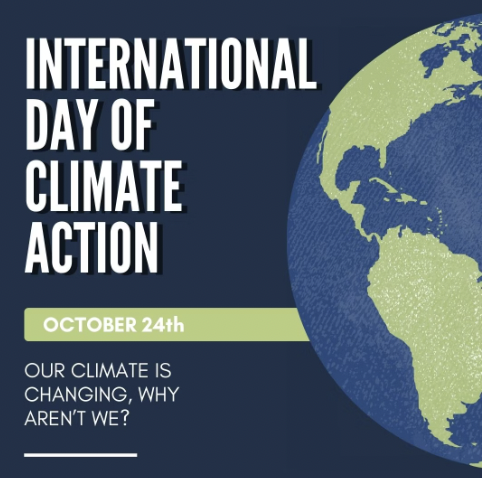
October 24th: International Day of Climate Action
On October 24, 2009, 350.org held the first "International Day of Climate Action," aiming to influence discussions at the December United Nations Climate Change Conference (COP15).
-

Eating Healthy Day (First Wednesday of November)
Eat Healthy Day serves as a reminder of the importance of mindful eating and making healthy food choices.
-

November 26th: World Sustainable Transport Day
World Sustainable Transport Day is an international day of action that emphasizes the need for cleaner, greener, and more efficient transportation methods.
Schools hold the key to a healthy, sustainable and regenerative future.
Education equips learners with the knowledge, skills, and mindset to understand and respond to today’s environmental challenges and their impacts, and to help restore and regenerate the natural systems we depend on.
Schools can prepare students to think critically, act creatively, and contribute to a future where communities and ecosystems can thrive—now and for generations to come.
But how do we get there?

START: Sustainability Tracking, Analytics & Roadmap Tool was created by schools, for schools, to help them develop comprehensive programs for step-by-step progress towards sustainability and regenerative practice.
START provides a Roadmap for School Sustainability:
It breaks down school sustainability into clear actions (‘metrics’), such as Minimizing Waste, Reducing Greenhouse Gas Emissions, and supporting Sustainable Transportation options.
However, research shows it’s not enough for a school to simply reduce its environmental impact in its Physical Place (buildings & grounds).
Students and staff also need to learn about sustainability (Educational Programs), and practice it in day-to-day activities (Organizational Culture), because hands-on involvement fosters lasting habits and a deeper understanding of our shared responsibility for environmental stewardship.
How sustainable is our school now?
Schools use START to measure how sustainable they are now. A school’s START team investigates how their school currently operates to find their ‘sustainability baseline’ for each metric. For example, is our school a beginner, intermediate or advanced in sustainable water use? START enables schools to benchmark, track and visualize their current sustainability levels, as well as hard data around their waste, water, energy and greenhouse gas emissions.
Where should we go next, and how can we collaborate for success?
What do we need to do to ‘level up’ in each metric? Once schools have their baselines, START helps them to set goals and plan for progress. START provides a central hub for school members to collaborate, document, and plan their school’s sustainability journey.

START is a subscription-based Whole School Sustainability dashboard.
It requires at least one adult school member to create a school’s START account, but it will need a team (students, teachers and staff) to grow a Whole School Sustainability program.
Interested schools can sign up for a demo or apply to set up an account.
Learn more about START here, and consider sharing the brochure with your school.
Let’s create a better future, one school at a time.
Contact us at guides@greenschoolsalliance.org if you have a free resource to contribute or recommend that can help schools take action around this specific sustainability metric.






